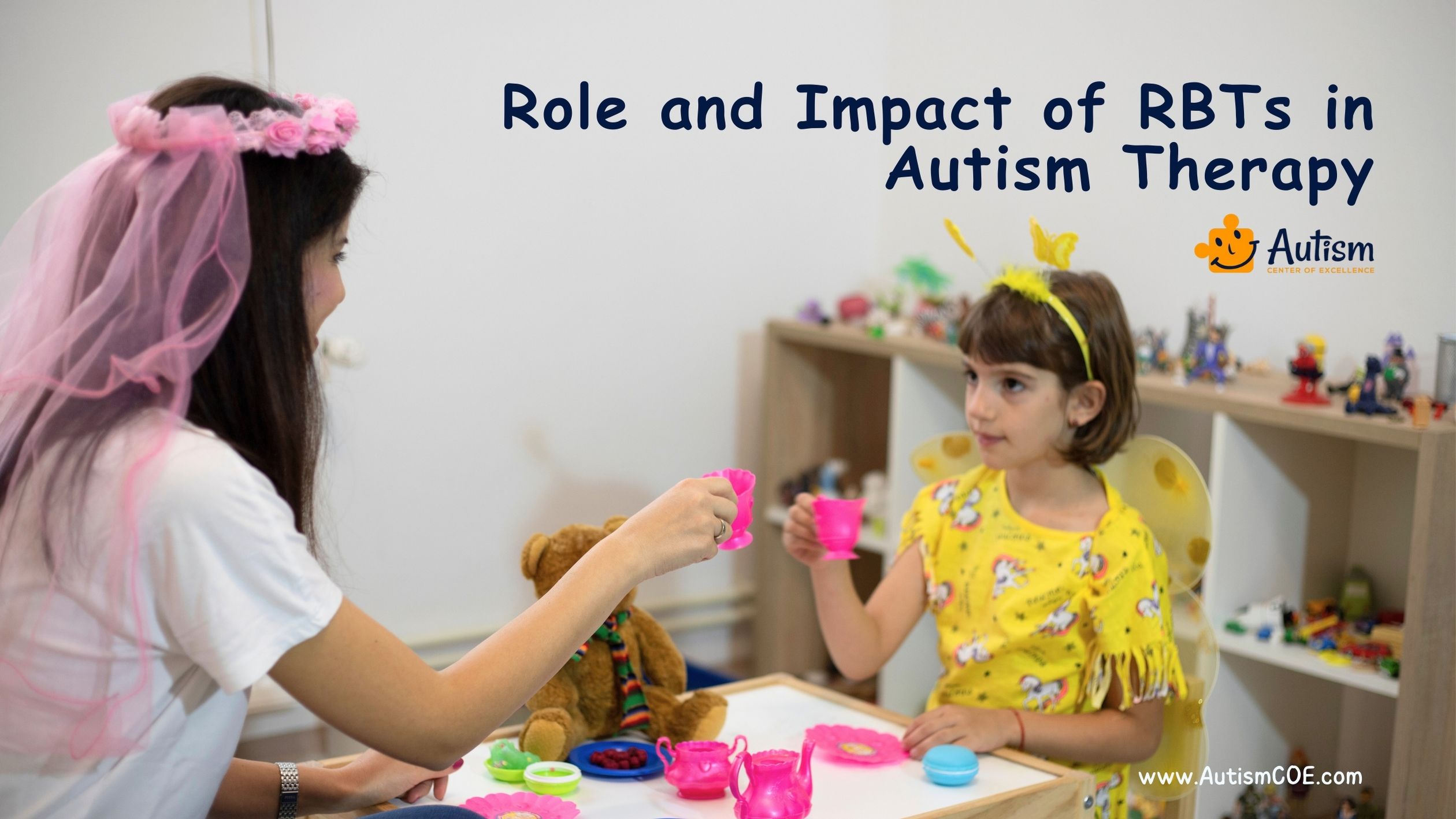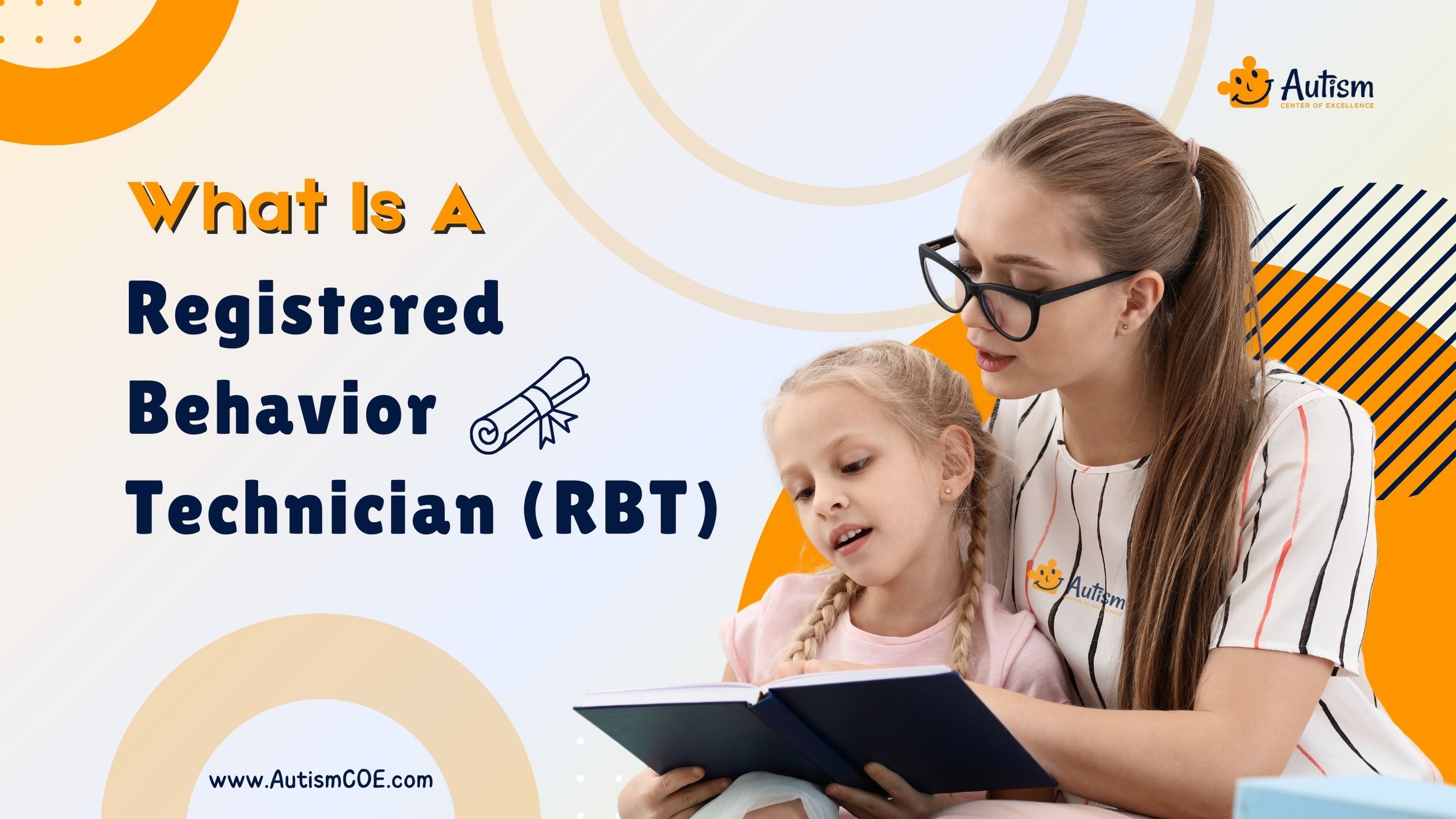The role of a Registered Behavior Technician (RBT) entails providing direct services to individuals with autism and other developmental disorders, making it a fulfilling career for individuals who want to mean something in society. By working closely with Board Certified Behavior Analysts (BCBAs), RBTs play a crucial role in providing Applied Behavior Analysis (ABA) autism therapy, which is highly effective in early intervention and School Readiness Programs.
This blog post aims to guide you through the essential aspects of the RBT profession, including the certification process, roles, benefits, and job prospects. It is crucial for individuals to have knowledge of the role of an RBT and steps towards achieving this career to determine if the profession is requisite for them.
What is a Registered Behavior Technician (RBT)?
A Registered Behavior Technician (RBT) is a professional who provides behavior therapy services under the guidance of a BCBA or BCaBA. RBTs are mainly involved in the delivery of behavior intervention plans developed by their supervisors to modify socially significant behaviors in people, especially those with ASD and other developmental disabilities. The RBT’s role is significant in administering ABA Therapy which entails real-life support such as data collection, skill training, and management of behaviors. Through the application of these methods, RBTs assist children in acquiring essential skills and enhancing their overall well-being.
An RBT’s position is different but equally important to that of more experienced personnel in the field of ABA. While BCBAs or BCaBAs are involved in the development of behavior intervention plans, RBTs are mainly responsible for the proper and effective delivery of these plans. To be successful in this role, the candidate should have a good knowledge of ABA practices, good observation skills, and the ability to adhere to the set procedures. RBTs are also required to undergo certain training and must pass the RBT Competency Assessment and RBT Exam to be certified by the Behavior Analyst Certification Board (BACB). This certification assures that RBTs are sufficiently prepared to support ABA and Other Autism Therapies, which makes them a great addition to any therapeutic team.

The Role of RBTs in ABA and Early Intervention for Autism
RBTs are very important in the implementation of ABA therapy and most especially in Autism Early Intervention. Applied Behavioral Analysis (ABA) is a popular technique used for Enhancing Communication, interpersonal relations, and daily living skills of People with Autism Spectrum Disorder (ASD). RBTs also have face-to-face contact with children and they execute the Behavior Intervention Plan Developed by BCBAs or BCaBAs. Some of the tangible activities are carrying out the therapy sessions, assessing the children’s changes, and modifying the interventions as they observe the children. This direct interaction is critical in attaining the behavioral changes intended in the intervention plans, hence enhancing the children’s development.
In Early Intervention Services, RBTs are crucial in ensuring that children with ASD receive the much-needed timely services. Research has indicated that there is a great potential for Early Intervention which is because children at a tender age are more likely to respond positively to the measures put in place. The RBT’s work with the child involves the use of routines and activities that are beneficial for the child’s learning and development including language, social, and adaptive behaviors. RBTs use one-on-one and specific endeavors to assist children in developing basic skills necessary for their future. The devotion of their efforts to each child guarantees that the child gets all the attention he or she requires to grow well; thus, the position of an RBT is vital in early autism intervention.

How to Become a Registered Behavior Technician (RBT)?
The process of becoming an RBT is a great opportunity for individuals to help improve the lives of others using ABA. This article will provide you with information on the steps and conditions that may help you get your RBT certification.
☑️ BACB Requirements for RBT Certification
The Behavior Analyst Certification Board (BACB) has set certain guidelines so that all RBTs are well-equipped to carry out their responsibilities.
Educational Prerequisites
In order to become a Registered Behavior Technician, there are certain educational requirements that one has to meet as per the guidelines provided by the BACB. At a minimum, applicants must have a high school diploma or the equivalent. It is not necessary to have a higher level of education; however, it is helpful to have a background in psychology, education, or a related field as this may improve one’s comprehension of ABA. Additional coursework or training in ABA can also help build a strong background for future RBT responsibilities.
Age and Background Check Requirements
Apart from academic qualifications, the following are the requirements for RBT certification; Candidates must be at least 18 years of age. They are also required to undergo a thorough screening process that includes a background check to assess their ethical fitness to work with vulnerable persons. This check may involve criminal history checks and may also involve fingerprinting. These requirements are put in place to safeguard consumers and uphold the standards of the ABA profession by only permitting qualified and reliable individuals to be certified as RBTs.
☑️Process of RBT Certification
To become an RBT, there are several steps that one has to follow.
- First, candidates are required to undergo a 40-hour training program on the basics of ABA and its implementation. This training must be delivered by an RBT Supervisor or RBT Requirements Coordinator and includes topics such as measurement, assessment, Skill Development, behavior reduction, documentation, and reporting.
- Once the training is done, candidates must undertake the RBT Competency Assessment which checks their preparedness for the position.
- Lastly, to be certified, the candidates must undergo and pass the RBT Exam set by the BACB.

Benefits of Becoming a Certified RBT
Becoming a Registered Behavior Technician offers numerous benefits, both personally and professionally.
Career Advancement Opportunities
RBT certification can help to advance one’s career given that it is a professional course in the field. You will also gain on-the-job experience in Applied Behavior Analysis (ABA) as an RBT and this can help you proceed with further certification and learning, for instance, the BCBA. This foundation is based on your career development and assists you in increasing your income.
Job Security and Market Demand
There is a great demand for qualified RBTs because ABA therapy is known to be very effective in the treatment of ASD and other developmental disorders. This continuing need for services guarantees that there are employment opportunities are steady and there are many positions open in schools, clinics, and home-based programs. This is because RBT certification sets one apart in the ever-expanding job market in today’s world.
Personal Fulfillment and Professional Growth
RBT job offers satisfaction at both the personal and career levels. It is very rewarding to help improve the skills of individuals with ASD as well as improve their quality of life. Moreover, the certification requires the continuous undertaking of further learning in order to be in a position to meet the current ABA practice therefore professionalism is enhanced. This is why being a Certified RBT is very gratifying and satisfactory both personally and professionally.
Join Our Weekly Newsletters!
Subscribe now to stay updated with our latest email updates.
RBT Salary and Job Prospects
RBTs are also expected to have good employment opportunities and reasonable wages because ABA therapy is on the rise, especially in Autism Spectrum Disorders. According to the data from the industry, an RBT’s average salary in the United States ranges from $30,000 to $45,000 annually; nevertheless, the salary may vary with the number of years worked, the region, and the certifications.
The following are the places where employment can be gotten; schools, private clinics, hospitals, and home-based therapy programs. Due to the ever-increasing demand for professionals in the behavioral health field, RBTs will be guaranteed of stable employment and growth. Furthermore, many organizations offer bonuses including training, supervision, and professional growth which enhances the attractiveness of the career.
Limitations for RBTs
Understanding the constraints of Registered Behavior Technicians is important for effective implementation and support kids in behavioral therapy.
- Supervised Practice: RBTs have to work under the supervision of BCBA or BCaBA.
- Scope of Practice: They are not permitted to design intervention programs or complete assessments on their own.
- Implementation Role: Their main responsibilities include implementing and ensuring compliance with behavior intervention plans and collecting information as instructed by their supervisors.
- Restricted Decision-Making: RBTs cannot modify the programs significantly without supervision from their supervisors.
- Certification Boundaries: They should hence make sure that they only work to the extent of the training and certification that they have undergone.
Ethical Considerations and Guidelines
Maintaining ethical standards is crucial for ensuring the integrity and effectiveness of services provided by RBTs.
- Confidentiality: RBTs must always maintain client confidentiality and protect sensitive information.
- Informed Consent: They need to make sure that they seek permission from the clients or their parents before implementing the interventions.
- Avoiding Dual Relationships: RBTs are advised against having dual relationships or any other circumstances that may interfere with their impartiality.
- Reporting Unethical Behavior: They are supposed to report any form of malpractice or any concern to the respective supervisors.
- Cultural Sensitivity: It is necessary for the practices to be culturally suitable to every patient who comes to the practice.
- Continuous Ethical Training: The ethical training should be routine since rules and regulations change and there are always difficult situations to deal with.
Advance Your ABA Career with AutismCOE
The Autism Center of Excellence is a leading Center of ABA Therapy and provides appropriate services to children with autism. It is our mission to provide each child with highly individualized and quality therapy services in order to foster their growth. We are actively looking for Registered Behavior Technicians (RBTs) in various positions in North Carolina and Virginia for Career Advancement. If you are looking for an opportunity to work in the ABA field or just want to join a helpful and efficient team, you are welcome to join us. Altogether, we can make this world a better place and help those who are in need.
Frequently Asked Questions & Answer
How Long Does It Take to Be an RBT?
The time taken in order to become an RBT varies with the candidate and the time they take to complete the course and the training. One has to complete a 40-hour training, have a criminal records check, and also pass an RBT Competency Assessment by a BCBA. Then candidates can apply for the RBT examination from the Behavior Analyst Certification Board (BACB). Overall, it may take 2-3 months to become an RBT.
Do RBTs Only Work with Autism?
This is not true because RBTs are not limited to working with persons with autism. Nevertheless, due to the increased need for ABA Therapy for Autism, many RBTs will probably have children with autism or other developmental disorders, behavioral issues, and mental health issues. RBTs can be applied in different settings including educational institutions, health facilities clinics and hospitals, and homes for the elderly or other dependents to help a number of clients.
How Much Does a Registered Behavior Technician Make?
The salary of an RBT ranges from $30,000 to $45,000 per year in the United States. The actual salary may vary depending on a number of factors such as; location, experience, employer, and any other certifications. Some regions and organizations can provide higher wages, especially for the professional or skilled workers, or the ones who have certain abilities.
What is the Difference Between a Behavior Technician and a Registered Behavior Technician?
The main difference between a Behavior Technician and an RBT is that the latter is certified. An RBT is a behavior technician who has fulfilled the requirements of the BACB, which include completing 40 hours of training, undergoing a competency assessment, and passing the RBT test.
However, a Behavior Technician might not be certified and may not have met these particular requirements. The RBT certification guarantees that there is a minimum standard of knowledge and proficiency in delivering ABA services, hence making RBTs more competent and recognized in society.
Conclusion
Becoming an RBT is a fulfilling job that offers job security, career advancement, and the satisfaction of being able to assist people in need. Despite the fact that there are some limitations and certain ethical guidelines that regulate the work of an RBT in ABA, this position is very significant, and one can always find a way to grow professionally. As RBTs gain experience and practice high ethical conduct, they offer a solid base for the furthering of their Career in ABA.
Please Note: The content of this blog is for informational purposes only and should not be considered a substitute for professional medical advice, diagnosis, or treatment. Consult a qualified healthcare professional for personalized guidance tailored to your specific situation.

Bhavika Bhasin
Bhavika Bhasin is the Research and Marketing officer at AutismCOE. She works with children and adults with ASD. Her clinical research includes evaluating various available autism screening and diagnosis methods and their efficacy. She is currently developing a novel screening exam that is indicated to be more accurate than the existing available exams. She is also writes articles papers for various publications.


